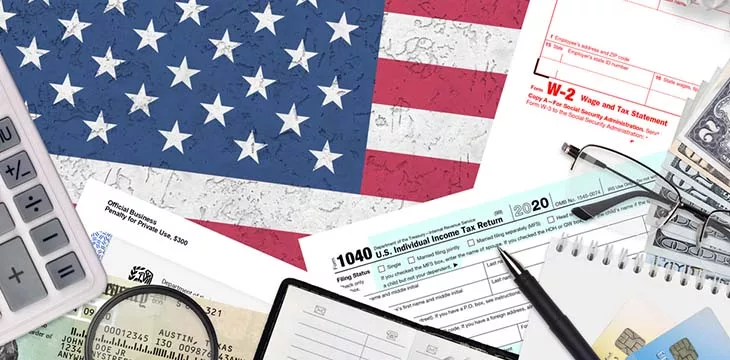|
Getting your Trinity Audio player ready...
|
Under new rules proposed by the U.S. Treasury Department, digital asset brokers, including exchanges and payment processors, will have to tell the Internal Revenue Service (IRS) about users’ trades of digital currencies like Bitcoin.
The new rules are part of a broader crackdown by authorities to combat tax evasion in the digital currency industry. Ultimately, they stem from the $1 trillion Infrastructure Investment and Jobs Act (2021).
Form 1099-DA will help taxpayers determine what they owe, removing the need to conduct complex calculations. Brokers must send necessary forms to both digital asset holders and the IRS.
Brokers are clearly defined, and DeFi does not escape the net
The new rules would subject digital asset brokers to the same rules as brokers of stocks, bonds, and other financial instruments.
The definition of a broker would include both centralized and so-called decentralized trading platforms, payment processors, and some wallets.
Predictably, this didn’t go down well in the decentralized finance (DeFi) community. Miller Whitehouse-Levine, CEO of the lobbying group ‘DeFi Education Fund,’ called the rules “confusing, self-refuting, and misguided.” He said they attempt to apply rules “predicated on the existence of intermediaries where none exist.”
However, as Bitcoin’s inventor, Dr. Craig Wright, has said many times, many entities labeled decentralized are global partnerships under law.
Clearly, the U.S. government thinks the rules apply, and no matter how hard DeFi proponents kick and scream, there are severe penalties for non-compliance with tax laws.
The regulatory crackdown continues and will only intensify
At CoinGeek, we’ve been warning for years that existing financial rules regarding funding, taxes, AML/KYC, and other rules apply to digital currencies and other assets. Slowly but surely, with an ever-intensifying pace, that thesis is being proven correct.
There’s no way to stop the global regulatory onslaught that’s already well underway. While regulators may have been slow to get moving, the collapse of FTX, Celsius Network, LUNA/UST, and many others has sped things up significantly.
While the rules proposed by the U.S. Treasury have not yet passed into law and are open for feedback until October 30, there’s no doubt that they or a modified version of them will eventually become law. They’re both another nail in the coffin of the digital currency industry as it was and an exciting step towards the era of utility and micropayments that Bitcoin was designed for.
Bitcoin and Digital Assets: Where Should Real Value Come From?

 07-13-2025
07-13-2025 





